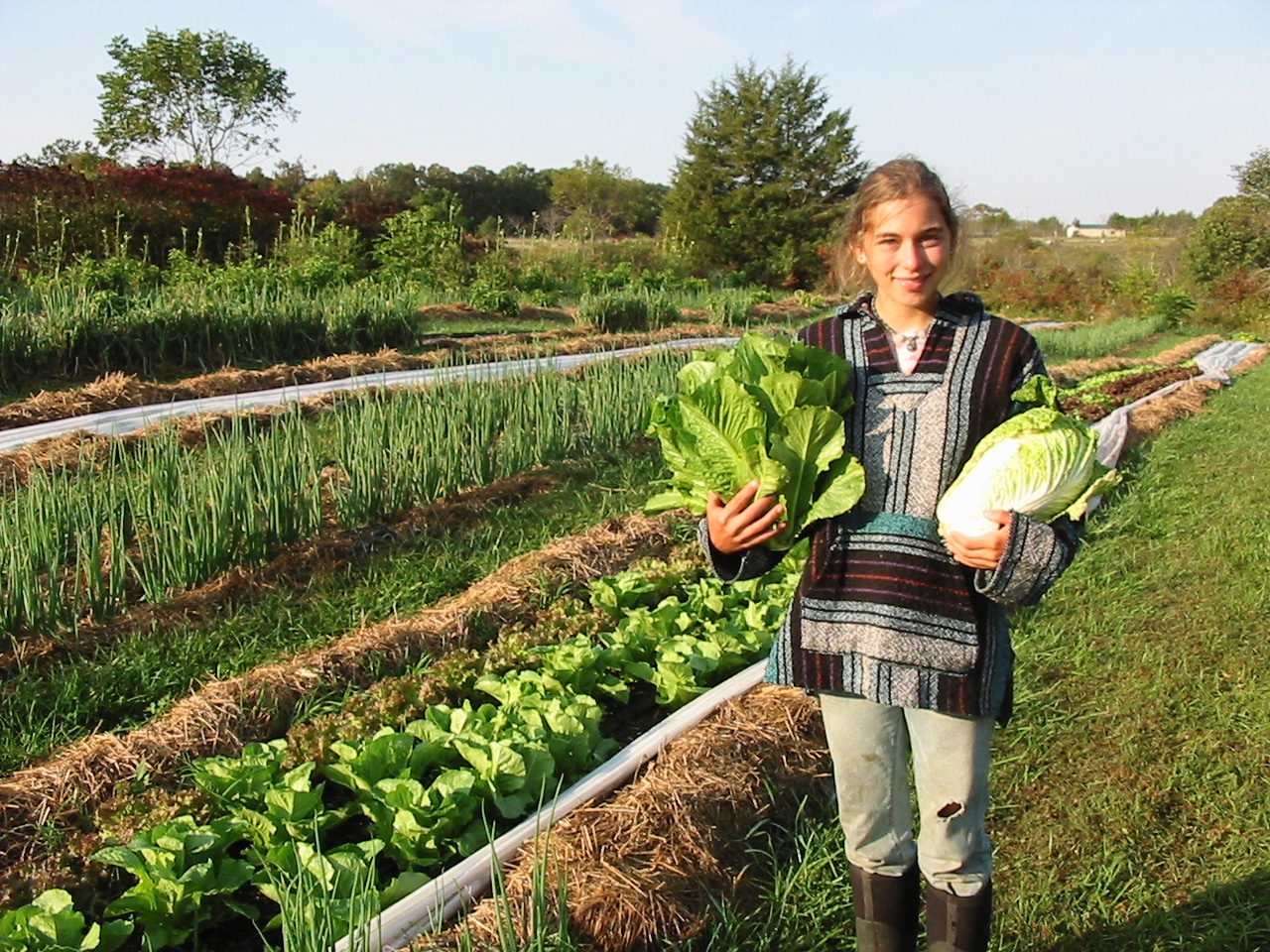Organic Farming and Why Everyone Should Support It
Organic food has become a buzzword over the past ten – twenty years. Despite the trendiness of the term there is real validity behind the idea of consumers supporting and encouraging the spread of more organic and sustainable farming. While the debate can rage over whether eating organic food actually causes a measurable overall daily health increase in the people eating it, here are some other important facts to help convince you organic food is preferable to conventional (non-organic).
Organic Farming & Chemical Pesticides
One interesting statistic to note is that the US Federal Budget provides $15 billion dollars annually in Farm Subsidies and 75% of those subsidies go to roughly 10% of the largest, industrial farms in the country.(4) These huge industrial farms by their nature have to use enormous amounts of toxic chemicals (herbicides and pesticides – weed and pest killers) that eventually end up in the soil and groundwater. Conventional farmers use over 1 billion pounds of pesticides and herbicides every year in the US. Most modern pesticides are more than 10 times as toxic to living organisms than those used in the 1950s.
The herbicide Atrazine, for example, is the most common pollutant found in public drinking water. In one study it was found in 80% of the water samples taken from 153 public water systems. (1) In a separate study of Iowa farm communities, it was found that increased exposure to atrazine nearly doubled women’s risk of having low birth weight and premature deliveries. More recent studies have found an increase in birth defects, the leading cause of infant mortality, among infants conceived during periods of peak atrazine use.(2)
 Other toxic herbicides used in industrial farming have become ubiquitous with the Monsanto-led campaign to induce all farmers to use their RoundUp Ready GMO crop seeds. Roundup Ready Crops(RR Crops) are genetically engineered crops that have had their DNA altered to allow them to withstand the herbicide glyphosate (the active ingredient of Monsanto’s Roundup). They are also known as “glyphosate tolerant crops.” When planting glyphosate tolerant crops, a farmer can spray the entire crop with glyphosate, killing only the weeds and leaving the crop alive. However, one concern with the heavy use of glyphosate on RR crops is that it will lead to the development of glyphosate resistant weeds (sometimes referred to as “superweeds”). By 2011 there were also three times as many herbicide-resistant weeds found in farmer’s fields as there were in 2001. In order to combat superweeds, the farmers must use ever more increasing amount and strengths of chemicals on their crops, which sets up a cycle of chemical overuse.
Other toxic herbicides used in industrial farming have become ubiquitous with the Monsanto-led campaign to induce all farmers to use their RoundUp Ready GMO crop seeds. Roundup Ready Crops(RR Crops) are genetically engineered crops that have had their DNA altered to allow them to withstand the herbicide glyphosate (the active ingredient of Monsanto’s Roundup). They are also known as “glyphosate tolerant crops.” When planting glyphosate tolerant crops, a farmer can spray the entire crop with glyphosate, killing only the weeds and leaving the crop alive. However, one concern with the heavy use of glyphosate on RR crops is that it will lead to the development of glyphosate resistant weeds (sometimes referred to as “superweeds”). By 2011 there were also three times as many herbicide-resistant weeds found in farmer’s fields as there were in 2001. In order to combat superweeds, the farmers must use ever more increasing amount and strengths of chemicals on their crops, which sets up a cycle of chemical overuse.
There is evidence that nitrogen and phosphorous runoff from synthetic fertilizers, also common to industrial, or “commercial” farming, has created a dead zone in the Gulf of Mexico roughly the size of Delaware & Rhode Island combined (4).
With all the horrible side effects of industrial farming, supporting organic farming is important for the health of our citizens and the future of the planet. Here are seven great reasons to support organic farming and eat organically grown fruits & vegetables.
- Helps Keep Chemicals Out of the Atmosphere, Groundwater, Soil and Our Bodies – According to the USDA 99.5% of US Farmland is controlled by massive industrial farms who douse their crops with gallons of harmful chemicals continuously. The faster we shift to more local, organic farm raised foods the faster this practice will decline.
- Helps Cut Down “Off Farm Pollution” – As mentioned above, the environment downstream from industrial farms is being visibly affected by the amount of chemicals that run off into the water. The more we support organic farming the less risk of contaminating the environment not only on industrial farms but around them as well.
- Soil – Pesticides have a detrimental effect to the soil that crops grow in. Scientists have noted a disturbing loss of micro nutrients and minerals in fruits and vegetables that can be tied to using poisonous pesticides during farming. Switching to more organic methods has been shown to increase the amount of nutrients in produce.
- Flavor – Organic food often tastes much better than its pesticide-drenched counterpart. New research shows that organic produce is often lower in nitrates and contains a larger percentage of anti-oxidants than conventionally raised crops.
- You’re helping smaller farms & family farms – The percentage of “organic” farms in the US vs the percentage of massive industrial operations is staggeringly unbalanced. Only about 15 – 20,000 of the 2 million estimated farms in the US today are considered “organic” The more we can move the needle to organic the more it will level the playing field for modestly sized farms that really take the time to do things right.
- You’re helping farmworkers and Their Families lower their exposure to toxic chemicals. These are the people who tend and harvest our food, and yet they are the people in our country most exposed to the devastating effects of agricultural chemicals. It is well documented that children born and raised on conventional farms have higher risk of birth defects, childhood cancers, and other serious health problems than children elsewhere don’t have. By choosing organic foods, you are helping protect farm workers and their children from these high risk factors.(3)
- Organic Ensures No GMO – The only way to measure whether or not a piece of produce contains GMO’s is via the organic label. For an item to be officially called organic by the USDA it must not contain GMO’s. So organic is really the only true label we have to ensure we are not eating genetically modified food. It’s one of the only food terms that is enforced by Federal inspectors and a regulatory body.
- Supporting Your Local Economy – Since organic produce does not have the chemicals to preserve or prevent pest damage, it tends to be sold more locally. Therefore it’s a safe bet if you’re buying organic produce, it was grown much closer to you, meaning you are putting money back into your local economy which has a direct positive impact that can be measured.
There are a myriad of other reasons to support organic farming, these are just 7 of them. There is plenty of evidence that we need to move as a society towards a more sustainable and less toxic method of farming. Supporting locally grown, organic farmers is one of the best way you can help aid the process.
Be well!
Source Material:
(1) http://www.toxipedia.org/display/toxipedia/Atrazine+-+Effects+on+Human+Health
(2) http://www.organic.org/articles/showarticle/article-206

Recent Comments